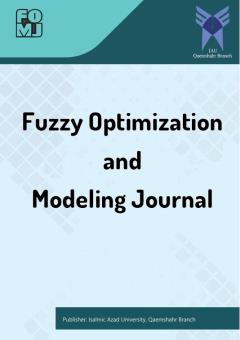Fuzzy Optimization and Modeling Journal is an international scholary open access journal and provides a forum for orginal study in the field of uncertain optimization and modeling problems. All papers published in Fuzzy Optimization and Modeling Journal are critically refereed according to international standards. Any paper will either be accepted (possibly with minor revisions) either submitted to another evaluation (after a major revision) or rejected. Every effort will be made by the Editorial Board to ensure a first answer concerning a submitted paper within two months, and a final decision in a period of time not exceeding four months.
Manuscripts should be written in English, following the style of our journal in what concerns the technical preparation of the papers. The template and style of our journal could be downloaded from Guide for Authors.
The journal will consider papers for publication in the following areas:
Theory and Methodology papers: Papers extending uncertainty theory in the context of fuzzy, stochastic and interval modeling and optimization.
Case Study papers: Papers describing the solution to an actual problem arising in uncertain optimization and modeling problems.
Algorithmic Developments: Papers establishing computational complexity in presenting new algorithms to solve uncertain optimization problems.
The scope of Fuzzy Optimization and Modeling Journal is the fuzzy delelopments in various fields suggested by the following alphabetical list of keywords:
- Analytic hierarchy process (AHP)
- Approximation Algorithms
- Artificial Intelligence
- Data envelopment analysis (DEA)
- Data mining
- Distributed Decision Making
- Dynamic Programming
- Game Theory
- Genetic Algorithms
- Goal programming
- Group Decision Making
- Heuristics Algorithms
- Integer and Binary Mathematical Programming
- Linear Programming
- Mathematical programming
- Multi-Attribute Decision Making
- Multi-Criteria Decision Making
- Neural Networks
- Optimal Control Theory
- Optimization
- Queuing Theory
- Shortest Path Problem
- Transportaion Problem


